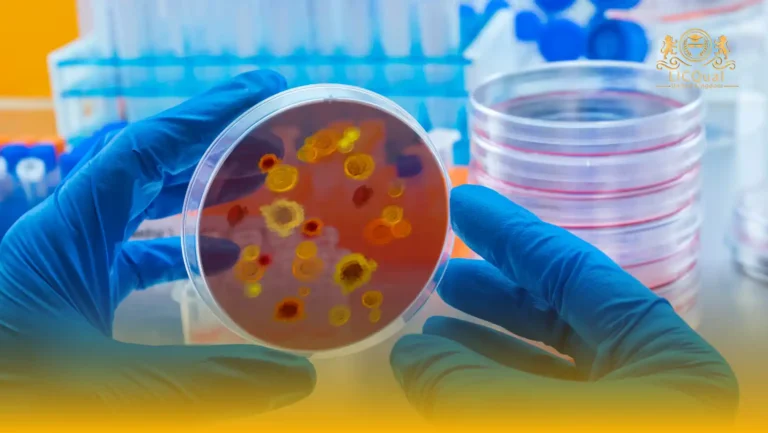The LICQual Level 7 Postgraduate Diploma in Pediatric Pharmacy (PgD Pediatric Pharmacy) is a specialized qualification designed for experienced professionals seeking to enhance their expertise in the field of pediatric medicines and pharmaceutical care. This advanced programme focuses on equipping learners with the critical skills, in-depth knowledge, and practical understanding required to address the unique challenges of pediatric pharmacotherapy.
This qualification is not intended for fresh candidates but is aimed at pharmacists, healthcare professionals, and industry specialists who are committed to advancing their careers and engaging in meaningful Continuing Professional Development (CPD). By undertaking this diploma, learners will gain the ability to critically evaluate clinical practices, implement evidence-based strategies, and contribute to the safe and effective use of medicines in paediatric populations.
Centres offering the PgD Pediatric Pharmacy must ensure the presence of competent and qualified staff with relevant expertise, along with access to appropriate resources, training materials, and facilities. This commitment to academic and professional excellence ensures that learners benefit from a structured, supportive, and high-quality learning experience that prepares them for leadership and advanced practice roles within pharmacy and healthcare.
With a strong focus on international standards and real-world application, this qualification provides learners with the opportunity to strengthen their professional competence, broaden their knowledge base, and make a lasting impact in pediatric pharmaceutical services. It is the ideal pathway for professionals who aspire to take their careers to the next level while contributing positively to the healthcare sector.
Course Overview
Qualification Title
LICQual Level 7 Postgraduate Diploma in Pediatric Pharmacy (PgD Pediatric Pharmacy)
Total Units
6
Total Credits
120
GLH
600
Qualification #
LICQ2201236
Qualification Specification
To enroll in the LICQual Level 7 Postgraduate Diploma in Pediatric Pharmacy (PgD Pediatric Pharmacy)
, applicants must meet the following criteria:
|
Qualification# |
Unit Title |
Credits |
GLH |
|---|---|---|---|
|
LICQ2201236-1 |
Advanced Principles of Paediatric Pharmacotherapy |
20 |
100 |
|
LICQ2201236-2 |
Clinical Paediatric Pharmacy Practice |
20 |
100 |
|
LICQ2201236-3 |
Pharmaceutical Care in Neonatology and Rare Disorders |
20 |
100 |
|
LICQ2201236-4 |
Paediatric Medicines Development and Regulation |
20 |
100 |
|
LICQ2201236-5 |
Leadership and Management in Paediatric Pharmacy |
20 |
100 |
|
LICQ2201236-6 |
Research Methods and Evidence-Based Practice in Pediatrics |
20 |
100 |
By the end of this course, learners will be able to:
Unit 1: Advanced Principles of Paediatric Pharmacotherapy
By the end of this unit, learners will be able to:
- Critically evaluate the principles of paediatric pharmacokinetics and pharmacodynamics
- Apply advanced knowledge to determine safe and effective dosing regimens for children
- Assess the risks and benefits of medicines in paediatric care
- Demonstrate advanced decision-making in complex pharmacotherapy cases
Unit 2: Clinical Paediatric Pharmacy Practice
By the end of this unit, learners will be able to:
- Apply evidence-based guidelines to paediatric prescribing and therapy management
- Integrate pharmaceutical expertise into multidisciplinary paediatric healthcare teams
- Conduct advanced therapeutic drug monitoring and medication reviews
- Analyse paediatric case studies and propose appropriate clinical interventions
Unit 3: Pharmaceutical Care in Neonatology and Rare Disorders
By the end of this unit, learners will be able to:
- Demonstrate an in-depth understanding of pharmaceutical care in neonates and infants
- Address drug therapy challenges in the treatment of rare paediatric conditions
- Apply ethical frameworks to complex paediatric clinical decision-making
- Evaluate advances in formulations and therapies for paediatric populations
Unit 4: Paediatric Medicines Development and Regulation
By the end of this unit, learners will be able to:
- Critically assess global regulatory frameworks governing paediatric medicines
- Evaluate ethical considerations and methodologies in paediatric clinical trials
- Examine pharmaceutical development processes specific to paediatric formulations
- Ensure compliance with quality and safety standards in paediatric medicine supply
Unit 5: Leadership and Management in Paediatric Pharmacy
By the end of this unit, learners will be able to:
- Apply leadership and management skills within paediatric pharmacy services
- Implement effective strategies for quality assurance and patient safety
- Manage clinical and hospital pharmacy operations with a paediatric focus
- Promote collaborative, patient-centred care in paediatric healthcare environments
Unit 6: Research Methods and Evidence-Based Practice in Paediatrics
By the end of this unit, learners will be able to:
- Apply advanced research methodologies in paediatric pharmacy studies
- Critically appraise clinical research and literature related to paediatric practice
- Integrate evidence-based findings into paediatric pharmaceutical care
- Design and conduct original research projects to improve healthcare outcomes
The LICQual Level 7 Postgraduate Diploma in Pediatric Pharmacy (PgD Pediatric Pharmacy) is designed for pharmacists, clinicians, and healthcare professionals who want to specialize in child healthcare and pharmaceutical care for infants, children, and adolescents. This internationally recognized postgraduate diploma equips learners with advanced skills, global accreditation, and career‑boosting recognition. Whether you are working in hospitals, pediatric clinics, or pharmaceutical companies, this Level 7 pharmacy qualification prepares you to deliver safe, effective, and evidence‑based pediatric care.
1. Practicing Pharmacists
- Pharmacists aiming to expand into pediatric pharmacy and child healthcare specialization
- Professionals seeking postgraduate qualifications for career progression
- Those interested in pediatric pharmacology and dosage optimization
- Individuals looking for internationally recognized pediatric pharmacy diplomas
- Pharmacists wanting to enhance patient safety and child‑focused pharmaceutical care
2. Hospital and Clinical Pharmacists
- Pharmacists working in hospitals managing pediatric drug supply and patient care
- Professionals involved in multidisciplinary pediatric healthcare teams
- Those responsible for therapeutic governance and child medicine distribution
- Clinicians seeking postgraduate training in pediatric pharmacy practice
- Hospital pharmacists aiming for global recognition with a Level 7 qualification
3. Pediatric Healthcare Professionals
- Doctors and nurses specializing in pediatric care and child health services
- Professionals managing pediatric treatment plans and drug administration
- Those seeking advanced knowledge in pediatric pharmacology and formulations
- Healthcare providers aiming to improve child safety through evidence‑based pharmacy
- Clinicians looking for internationally accredited pediatric pharmacy training
4. Pharmaceutical Industry Professionals
- Scientists working in pediatric drug development and formulation research
- Professionals engaged in biopharmaceutical innovation for child healthcare
- Those seeking postgraduate training in pediatric pharmacy and quality assurance
- Industry experts aiming to strengthen pediatric R&D and manufacturing capabilities
- Employees looking for internationally accredited pediatric pharmacy qualifications
5. Academic and Research Scholars
- Researchers focusing on pediatric pharmacy and child healthcare sciences
- Academics seeking postgraduate diplomas for teaching and curriculum development
- Scholars aiming to publish in pediatric pharmacy and healthcare journals
- Professionals interested in evidence‑based interventions for child health
- Those pursuing advanced qualifications to support research funding and grants
6. Early‑Career Pharmacists and Graduates
- Recent graduates seeking specialization in pediatric pharmacy and child healthcare
- Young professionals aiming to boost employability with postgraduate diplomas
- Those wanting to stand out in competitive pediatric healthcare job markets
- Graduates interested in advanced pharmacy training aligned with global needs
- Early‑career pharmacists seeking structured career pathways in pediatric sciences
7. Policy Makers and Healthcare Administrators
- Professionals shaping pediatric pharmacy and healthcare policies
- Administrators overseeing pharmacy education and pediatric healthcare programs
- Leaders aiming to integrate pediatric pharmacy expertise into national strategies
- Policy makers requiring advanced knowledge of child medicine frameworks
- Healthcare managers seeking internationally recognized postgraduate qualifications
Centres delivering the LICQual Level 7 Postgraduate Diploma in Paediatric Pharmacy must demonstrate the capacity, competence, and resources to ensure high-quality training and successful learner outcomes. To maintain international academic and professional standards, centres are required to meet the following:
- Qualified and Competent Staff
Centres must employ experienced and professionally qualified tutors, assessors, and internal verifiers with expertise in paediatric pharmacy and advanced pharmaceutical practice. - Access to Learning Resources
Centres must provide learners with access to updated learning materials, textbooks, journals, digital libraries, and case study resources relevant to paediatric pharmacy. - Facilities and Infrastructure
Training must be delivered in an environment that supports effective learning, including classrooms, seminar facilities, and access to online learning platforms. - Assessment and Quality Assurance Systems
Robust assessment methods must be in place, supported by strong internal quality assurance procedures to uphold the credibility and reliability of learner achievements. - Commitment to Learner Support
Centres must provide guidance, mentoring, and academic support to enable learners to meet the demands of postgraduate-level study. - Access to Technology
Learners must have access to computers, reliable internet, and digital tools to support research, online learning, and assessment submission.
Meeting these centre requirements ensures that delivery of the PgD Paediatric Pharmacy is consistent, professional, and aligned with international best practices, enabling learners to achieve excellence in their Continuing Professional Development (CPD) and professional practice.
Assessment and Verification
All units within this qualification are subject to internal assessment by the approved centre and external verification by LICQual. The qualification follows a criterion-referenced assessment approach, ensuring that learners meet all specified learning outcomes.
To achieve a ‘Pass’ in any unit, learners must provide valid, sufficient, and authentic evidence demonstrating their attainment of all learning outcomes and compliance with the prescribed assessment criteria. The Assessor is responsible for evaluating the evidence and determining whether the learner has successfully met the required standards.
Assessors must maintain a clear and comprehensive audit trail, documenting the basis for their assessment decisions to ensure transparency, consistency, and compliance with quality assurance requirements.







